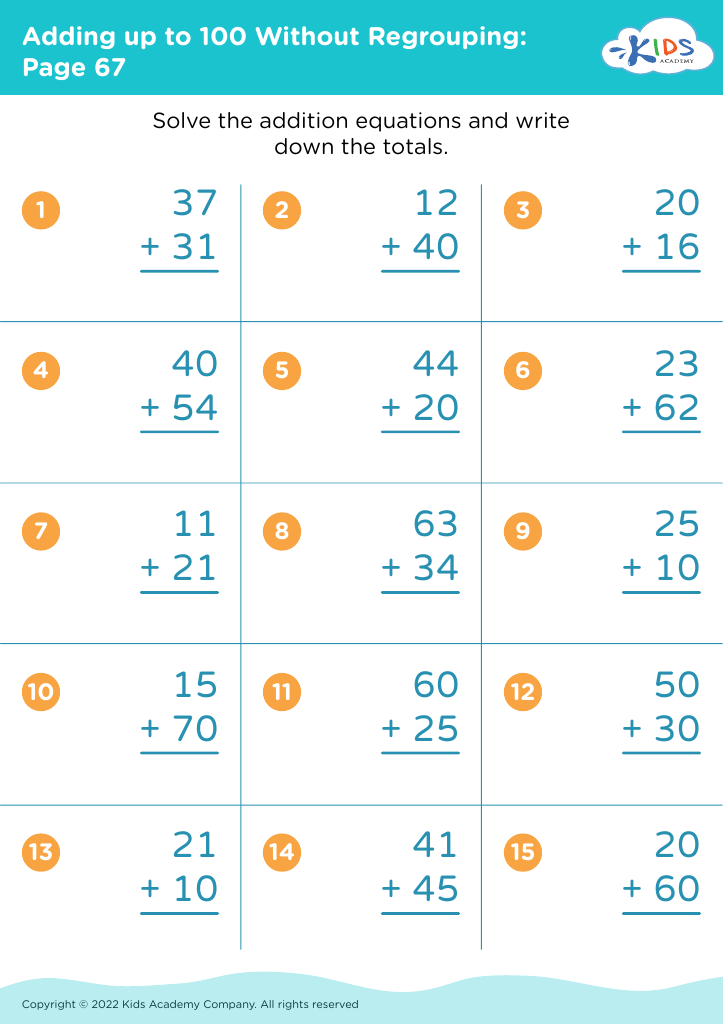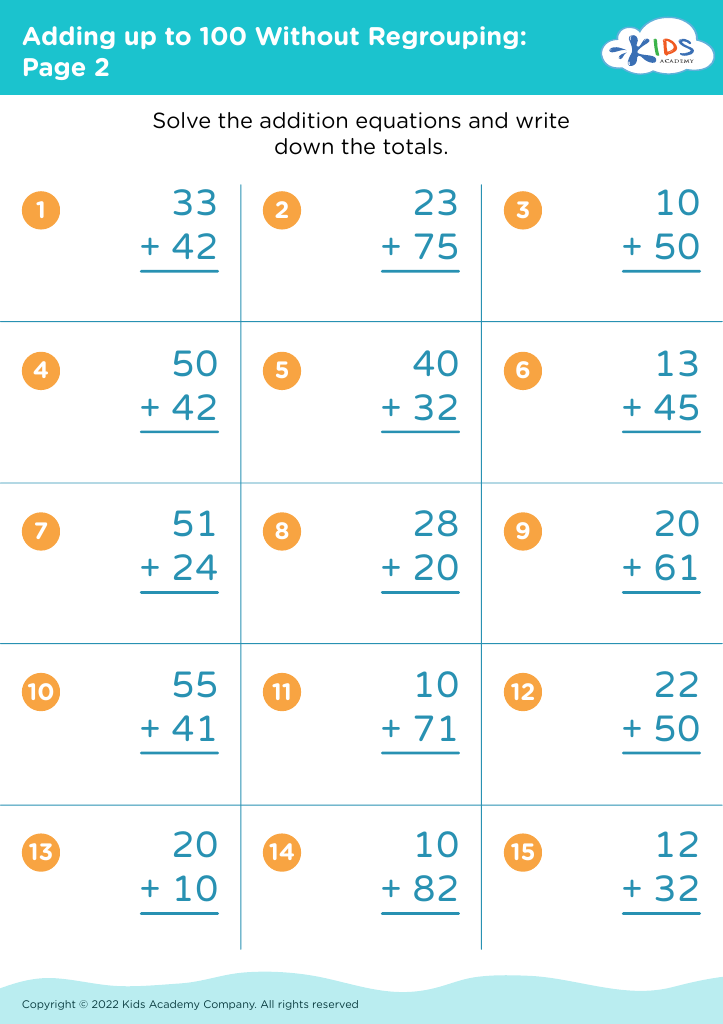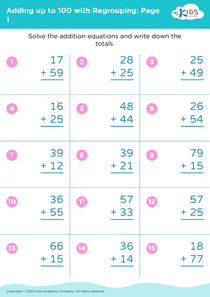Fine Motor Skills Adding up to 100 Without Regrouping Worksheets for Ages 7-8
4 filtered results
-
From - To
Boost your child's fine motor skills and math abilities with our "Adding Up to 100 Without Regrouping" worksheets, specially designed for ages 7-8. These engaging, hands-on worksheets help students practice arithmetic while enhancing their coordination and dexterity. Your young learners will enjoy tracing numbers, circling answers, and completing fun math exercises that build confidence in addition without the need for regrouping. Perfect for classroom use or at-home learning, these finely crafted activities provide a playful yet educational experience, making math enjoyable. Foster both fine motor proficiency and mathematical understanding today! Explore our worksheets and watch your child flourish!
Parents and teachers should prioritize the development of fine motor skills and the ability to add numbers up to 100 without regrouping in children ages 7-8 for several important reasons. Firstly, fine motor skills are crucial for various everyday tasks, such as writing, drawing, and using scissors. Developing these dexterity-based abilities fosters independence and self-confidence, enabling children to perform both academic and everyday tasks with ease.
Moreover, mastering addition without regrouping provides a strong foundational understanding of number sense and arithmetic, essential for higher-level math skills. It enhances cognitive development, helps children visualize numbers, and strengthens their problem-solving abilities. This is particularly significant for ages 7-8, as they transition from simple arithmetic to more complex concepts.
Additionally, combining fine motor skills with mathematical tasks can make learning engaging and interactive. Activities that involve crafts or games can reinforce both skill sets simultaneously, making the learning experience more holistic.
Ultimately, fostering these skills not only supports academic success but also prepares children for future learning challenges. Parental and teacher support in nurturing these abilities promotes a love for learning and equips children with the essential tools they will need in life.
















